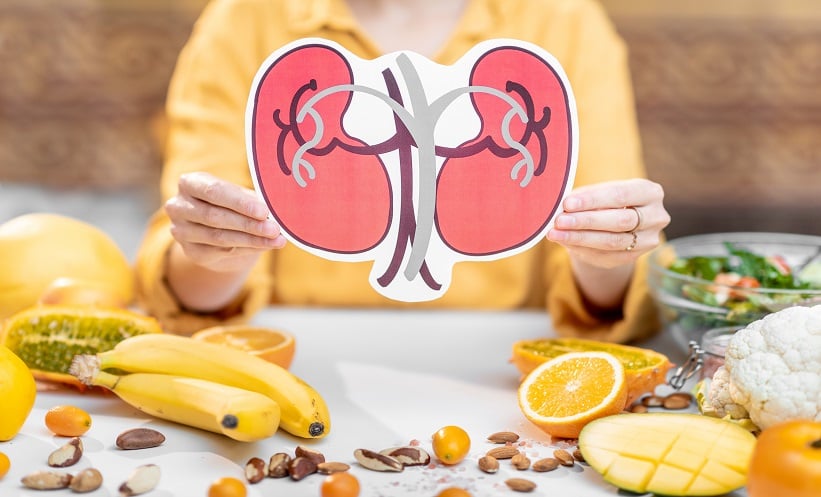A RECENT study has investigated the relationship between vegetable and fruit intake frequency and all-cause mortality in patients with chronic kidney disease (CKD). Minako Wakasugi, Niigata University Graduate School of Medical and Dental Sciences, Japan, and colleagues, reviewed data from a hospital-based cohort study, involving 2,006 patients who visited a general hospital outpatient department between June 2008–December 2016.
The findings revealed that patients with advanced CKD are generally advised against consuming high amounts of vegetables and fruits due to the potential risk of hyperkalaemia. However, the researchers aimed to explore whether vegetable and fruit intake frequency is associated with all-cause mortality and if this association is modified by the presence of CKD.
The study participants self-reported the frequency of their vegetable and fruit intake, which was classified as ‘never or rarely’, ‘sometimes’, or ‘every day’. As CKD stage worsened, the frequency of vegetable and fruit intake decreased. Interestingly, baseline serum potassium levels stratified by CKD stage were similar across the three intake frequency groups.
During a median follow-up of 5.7 years, the study observed 561 patient deaths, resulting in a mortality rate of 47.1 per 1,000 person-years. After adjusting for demographic factors, comorbidities, and CKD status, the researchers found that compared with the ‘every day’ intake group, the ‘sometimes’ group had an adjusted hazard ratio of 1.25, and the ‘never or rarely’ group had an adjusted hazard ratio of 1.60 for mortality. The researchers highlighted a dose-dependent correlation between vegetable and fruit intake frequency and all-cause mortality.
The data suggests that the daily consumption of vegetables and fruits may reduce all-cause mortality, not exclusively in patients afflicted with CKD, but also in those who are not. Nevertheless, it must be acknowledged that the study possessed certain constraints, particularly the self-reported information concerning food consumption. The investigators advised that more research must be conducted to delve into the mechanisms and feasible interventions to ameliorate the ingestion of vegetables and fruits in patients with CKD.








